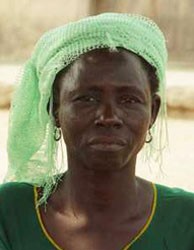Dukawa, Western in Nigeria

Photo Source:
Copyrighted © 2026
GoWestAfrica All rights reserved. Used with permission |
Send Joshua Project a map of this people group.
|
| People Name: | Dukawa, Western |
| Country: | Nigeria |
| 10/40 Window: | Yes |
| Population: | 73,000 |
| World Population: | 73,000 |
| Primary Language: | us-Saare |
| Primary Religion: | Ethnic Religions |
| Christian Adherents: | 7.00 % |
| Evangelicals: | 1.00 % |
| Scripture: | Portions |
| Ministry Resources: | Yes |
| Jesus Film: | No |
| Audio Recordings: | Yes |
| People Cluster: | Benue |
| Affinity Bloc: | Sub-Saharan Peoples |
| Progress Level: |
|
Introduction / History
The Dukawa of Nigeria are located in the Yauri division of the Sokoto Province and also in the Yelwa division of the Kontagora Province. They are closely related to the Kamberri, speaking a similar language, and are sometimes grouped under the large Hausa-Fulani cluster of people. The Dukawa language is us-Saare.
Many Dukawa were forced off their homeland in 1968 and resettled due to the completion of the Kainju Dam Project. In their new homeland, they had government schools, hospitals and jobs. They are becoming more modernized.
What Are Their Lives Like?
The Dukawa homeland has many hills and rocks, but they also have rivers with an abundance of fish. Nearby islands have fertile land for farming. Farmers raise onions along the rivers and millet and guinea corn in the highlands. They also grow beans, maize, peanuts, sweet potatoes and tobacco, which they use locally. Town dwellers also have large farms in the bush where they live for part of the year.
Many defensive towns remain in the Dukawa region; surrounded by strong, high walls with holes in them for guns and arrows. Deep moats surround the walls, outside which is another trench with low walls and prickly thorns. Some Dukawa live in rural villages outside these towns where they are sheltered by small huts.
The Dukawa have a history of being great fighters; bows and poisoned arrows were their principal weapons. Successful hunters and warriors wore black shirts and bracelets made of the skins of their victims. Hunting continues to be an important cultural aspect of Dukawa life. Arrows are sometimes fired out of guns, especially when hunting elephants.
Circumcision is not a common practice among Dukawa. A Dukawa boy becomes a man when he can wrestle. At that time, his father will give him land to farm for the next seven years, until he is ready to marry. Girls and boys have an opportunity to meet at the wrestling matches. Girls sprinkle flour on the head of the boy she desires. These customs are merging with those of other peoples as Nigeria becomes more modernized and commercialized.
What Are Their Beliefs?
Due to contact with Muslim traders, a number of the Dukawa are Muslim. However, the majority of the Dukawa practice ethnic religions. They believe that at death they will join their dead ancestors. They believe in and claim to often see ghosts walking about at night. The ghosts are said to have fire coming forth from their armpits and are known to beat people to death.
Most Dukawa believe in witchcraft and many gods. They are also animists (believe that non-living objects have spirits), and they worship and sacrifice for various inanimate objects. Medicines and oaths also play a role in Dukawa beliefs.
There are also some Christians among the Dukawa, but they still need someone from outside to extend the gospel in their communities.
What Are Their Needs?
The majority have not had an opportunity to hear the gospel. They need the gospel presented in a way they can understand and appreciate. Thousands of vibrant Nigerian Christ followers can do this.
Prayer Points
Ask the Lord of the harvest to send forth laborers and disciplers to the Dukawa.
Pray for the Lord to give a powerful spiritual hunger to the Dukawa, so that they will crave Christ no matter what the cost.
Pray the Holy Spirit will give Dukawa believers boldness and love to share Christ with their own people.